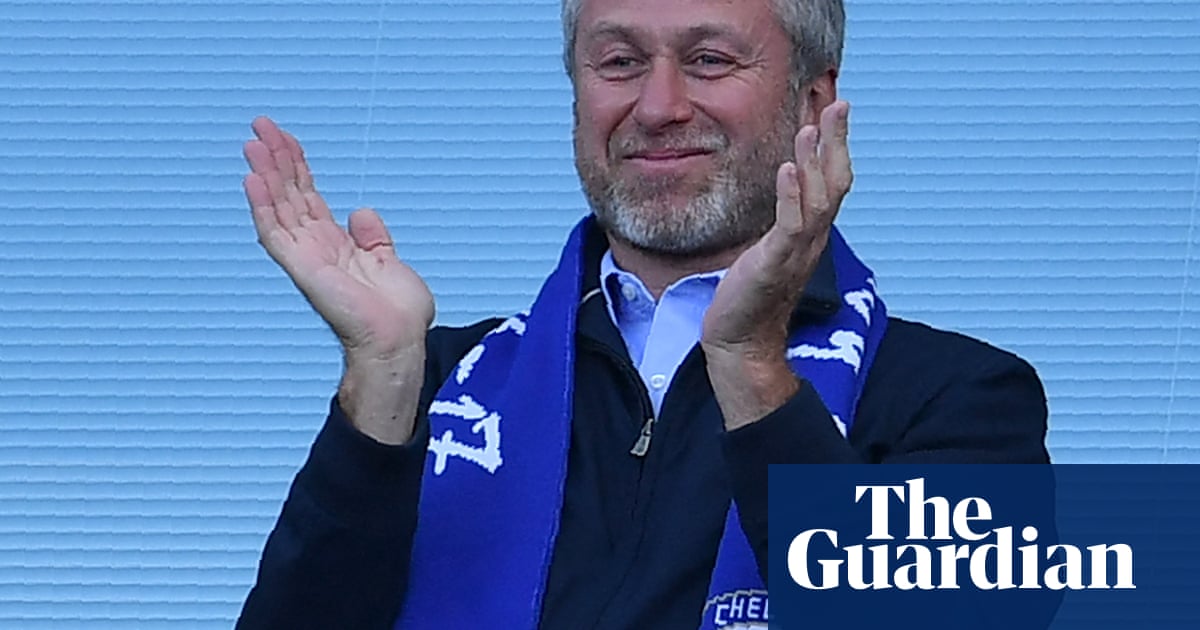The government says it is “fully prepared” to takeRoman Abramovichto court to resolve the three-year impasse over the £2.5bn frozen from the sale of Chelsea.
In a rare joint statement, the chancellor of the exchequer, Rachel Reeves, and the foreign secretary, David Lammy, confirmed the UK was ready to escalate its efforts to secure the money which has been promised to support humanitarian activity in Ukraine.
“The government is determined to see the proceeds from the sale ofChelseaFootball Club reach humanitarian causes in Ukraine, following Russia’s illegal full-scale invasion. We are deeply frustrated that it has not been possible to reach agreement on this with Mr Abramovich so far,” the statement read.
“While the door for negotiations will remain open, we are fully prepared to pursue this through the courts if required, to ensure people suffering in Ukraine can benefit from these proceeds as soon as possible.”
The Guardian first reported in March thatthe government was considering this move, with the hope that resolving questions over the Chelsea money could be separated from a broader debate over how to free up Russian assets frozen by sanctions.
Abramovichannounced his decision to sell Chelseafollowing the invasion of Ukraine by Russia in 2022. The billionaire oligarch, who had owned Chelsea for nearly 19 years, said he would put any proceeds from the sale into a charitable foundation “for the benefit of all victims of the war in Ukraine”.
A little more than a week after this declaration, however, Abramovich wassanctioned by the UK government, measures which remain in place. While the sale of Chelsea was allowed to go through, the proceeds could only be distributed when a licence was granted by the Office for Financial Sanctions Implementation. That licence, in turn, depended on the creation of a foundation, which has yet to be set up with the Charity Commission.
Sign up toFootball Daily
Kick off your evenings with the Guardian's take on the world of football
after newsletter promotion
In 2023 representatives of Abramovich told the Guardian they believed the then government hadchanged the termsunder which the money was eventually to be distributed, tightening the conditions under which it could be spent. The current Labour government has maintained the position of the previous administration, however, insisting that any money should only be used “for humanitarian purposes in Ukraine”.
